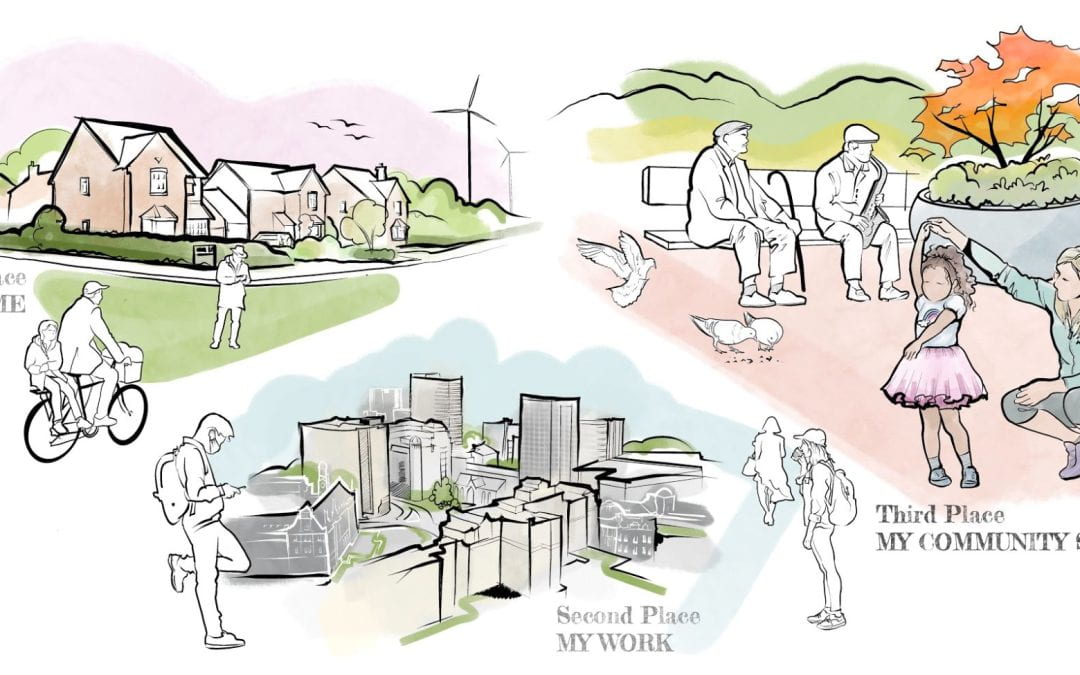
It is safe to say that Hastings is a wealthy village. With its median income well over double the national average (United States Census Bureau), many of us are very lucky to live in a town with such a vast array of resources. Behind all of this wealth, however, we noticed a theme throughout the students of Hastings High School, one of unawareness and unnecessary justification when it comes to wealth. It is something we have both subtly noticed through our years in high school, a sort of embarrassment when it comes to wealth, and a subconscious effort to try and appear less privileged. And so it was no surprise that when we decided to survey the students and teachers of HHS on the topic, our views were reaffirmed, but to an even more shocking degree than we would have thought.
The week before winter break, we created two surveys that we hoped would uncover some of the opinions we expected to be boiling under the surface. We asked students relatively simple questions about the wealth of themselves and their peers. For teachers, we steered more towards inquiring about how they view the wealth of their own students: what are the general trends they have seen in their classrooms?
We first wanted to gather some general information about views of wealth in Hastings. Overwhelmingly, but not surprisingly, over 90% of teachers and students agree that their peers (or their students) were wealthy, illustrating an awareness of affluence in the community. This general view on wealth came with its more complex nuances, however. 64.5% of students seem to think that their peers downplay their financial status, which could point to an unawareness that was not detected in the survey or a need for justification of wealth. We saw similar trends among the students in the survey, as a vast majority admitted to understanding their financial situation quite well. This awareness, however, sharply contrasted the results of the teacher survey. In the write-in section, several teachers talked about instances of wasteful behavior in the classrooms, such as wasting food, that exhibit privilege. What we concluded from this contradiction was that students tend to try and justify their wealth despite their unawareness, which is paradoxical.
What shocked us the most was the extent to which the teachers commented on behavior in their classrooms. With write-in answers such as “It’s my impression that many are unaware of their level of privilege in a variety of ways” and “A tremendous drop in ethical behavior. Greater levels of selfishness,” it seems as though, unlike what we found in the student survey, teachers seem to agree that Hastings kids tend to be unaware of their situation to the point where teachers seemed to exhibit anger. It made us set out to ask the question: What are the roots of this behavior?
A frequently mentioned idea among student responses is that Hastings is a “bubble.” It is also worth noting that “bubble” is the preferred term to use—not “closed-off,” “limited,” or “small.” Though they seem synonymous, “bubble” is the go-to term. In the survey, 93.3% of students also feel as though growing up in a wealthy town has given them more freedom, knowledge, and understanding. One student said: “I think that the resources provided by the school have let me grow my understanding and freedom. However, it is obviously a bubble, and for most, Hastings serves as a ‘protective barrier’ from the nearby working-class neighborhoods only a few miles in any direction.” This sentiment was expressed by several other students, who felt our wealthy Rivertown culture actually hid them from harsh realities. For a town that prides itself on woke-ness and invitation of culture, it is clear that Hastings lacks a more diverse financial understanding.
Why do we see these themes of justification of wealth despite an unawareness? This idea that it is “embarrassing” to be affluent is confusing: why would one be ashamed of their lifestyle? An explanation could be rooted in generational values. The Survey Center for American Life conducted a 2022 survey on generational views on success. While the silent generation, baby boomers, and Gen X seemed to agree that hard work builds for success, millennials and Gen Z voted in majority that good social connections are the keys to success. This partially explains these perceptions behind wealth, as a generation who is prioritizing making the most socially, hard work as an individual is becoming less relevant. Now this prioritization socially could be rooted in many things, but perhaps most obviously in social media. New standards for maintaining a self image are taking a toll on how kids view success.
We sought to understand, rather than answer, the intricacies of Hastings students and teachers’ opinions on wealth in our town. While the surveys we sent out provided us with much-needed statistics, much of our collection of knowledge came from pure observation. Look around – our school district is teeming with examples of unacknowledged privilege. Rather than convince ourselves that we are the exceptions in a town of ignorance, we should collectively notice our place in the world and realize what we have. We hope that this article helped make you a little bit more aware of how you place yourself among your peers as Hastings students, faculty, parents, and beyond.


















